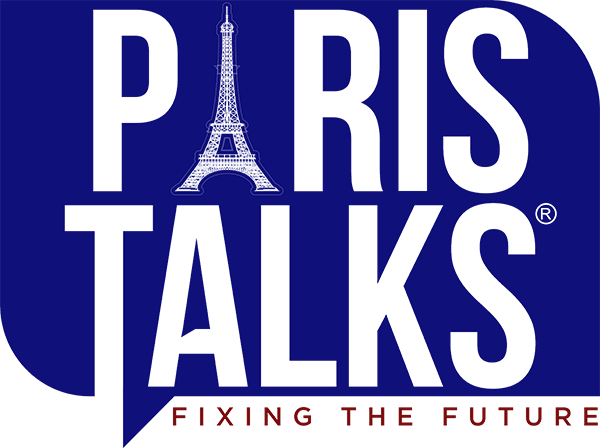The Unexpected Discovery of Libianca’s ‘People’

Earlier this week, our encounter with Libianca’s soul-stirring song “People” unfolded serendipitously in the vibrant heart of Paris. In a quaint bar nestled in the 10ème arrondissement, a favorite haunt for both locals and expatriates, the haunting melody of “People” cut through the lively buzz of the bar.
Amidst the clinking of glasses and the hum of diverse conversations, Libianca’s voice resonated, narrating a tale of loneliness and mental health that instantly captivated our attention.
A quick Google and YouTube search revealed that Libianca, a Cameroonian-American artist, is at the forefront of a musical movement. At just 23 years old, her music exudes a maturity and depth that transcends cultural boundaries.
“People,” with its poignant themes of emotional struggle and Libianca’s heartfelt delivery, struck a deep chord with us. It reflected not just individual experiences but also the broader societal shifts in understanding and addressing mental health and emotional well-being.
The decision to feature “People” on the Paris Talks 2024 ideas page felt almost instinctive. Here was a song that resonated profoundly with the personal experiences of many in our community and mirrored the broader societal shifts in understanding and addressing mental health and emotional well-being.
Libianca’s journey to musical success is a story of resilience and authenticity. Born in Minnesota and raised in Cameroon, she returned to the US as a teenager. Her music, influenced by the vibrant sounds of African sounds and her experiences in the US, is a testament to her diverse upbringing. Despite the pressures of a traditional career path, Libianca pursued her passion for music, a journey that led her to appear on The Voice in 2021 and win Best New International Act at the 2023 BET Awards.
“People” emerged from a period of personal turmoil for Libianca. The song was born out of a moment of despair and became a viral sensation on TikTok, striking a chord with millions worldwide. Its lyrics discuss her experience with cyclothymia, a mood disorder, and the song’s creation was a form of therapy during a challenging time in her life.
Libianca’s music is more than just a melody; it’s a narrative that speaks to the human experience, resonating with themes of loneliness, mental health, and the need for empathy and understanding.
As we prepare to delve into these themes at the Paris Talks 2024 Ideas Festival, Libianca’s “People” stands as a poignant reminder of the power of music in addressing the complexities of modern life and the evolving nature of care in our interconnected and diverse societies.
Loneliness and the Quest for Connection
Libianca’s song “People” opens with the lines, “I’ve been drinking more alcohol for the past 5 days. Did you check on me? Now did you look for me?” These lyrics poignantly capture a profound sense of loneliness and a desperate need for connection, themes that are deeply relevant in the context of urbanization and its impact on individual well-being.
Drawing parallels with findings from the 2018 Urbanization and Quality of Life Survey conducted in China, the song’s message resonates with the study’s insights into how urbanization influences loneliness. The survey, which analyzed data from 3,229 residents in areas undergoing rural-urban transition, reveals that factors like population density, duration of urban status, neighborhood transition, and housing type significantly affect residents’ experiences of loneliness.
The study differentiates between emotional and social loneliness, using the revised six-item De Jong Gierveld Loneliness Scale. It found that urbanization at various levels (county, township, and neighborhood) is significantly associated with emotional loneliness while living in temporary housing emerges as a clear risk factor for social loneliness. This distinction is crucial in understanding the depth of the loneliness depicted in Libianca’s song.
Libianca’s lyrics, reflecting the emotional loneliness that often accompanies life in urban settings, align with the study’s findings. The act of drinking as a coping mechanism for loneliness, as mentioned in the song, underscores the emotional void that urban residents often experience, despite being surrounded by a dense population.
Moreover, the study’s emphasis on the association of loneliness with psychological distress echoes the sentiment in Libianca’s song. The plea for someone to check on her, to notice her struggles, highlights the social aspect of loneliness – the lack of meaningful connections and support in an urban environment.
“People” not only captures the individual’s emotional journey in the face of urban loneliness but also reflects broader societal patterns identified in contemporary research. It’s a powerful commentary on the impact of urbanization on human connections, emphasizing the need for a deeper understanding and response to the evolving nature of loneliness in our increasingly urbanized world.
Let’s now try to understand the layers of Libianca’s ‘People’ and what that means to the evolution of Modern Care
The Hidden Battle with Mental Health
In “People,” Libianca poignantly addresses the critical issue of mental health, a concern increasingly prominent in public discourse. The lyrics, “Nobody will know the paranoia / Cuz I put a smile on my face / A facade you can never face,” powerfully encapsulate the struggle many face in concealing their mental health challenges behind a veneer of normalcy.
This portrayal aligns with the World Health Organization’s (WHO) findings of a global rise in mental health awareness, juxtaposed with the persistent challenge of accessing adequate care.
The song’s narrative reflects the hidden battles with mental health that often go unnoticed in society. Libianca’s depiction of putting on a smile as a facade resonates with the experiences of countless individuals who mask their psychological distress in daily life. This aspect of the song highlights the gap between increasing awareness and the reality of living with mental health issues, particularly in urban settings like Paris, where cultural diversity adds layers of complexity to mental health care.
The WHO’s emphasis on the need for better access to mental health services is underscored by Libianca’s lyrics. They bring to light the internal struggles that often remain invisible in bustling, culturally rich urban environments.
Empathy Across Diverse Cultures: The Unifying Power of Music
Libianca’s “People” offers a profound exploration of empathy across cultures, a theme of paramount importance in a city as diverse as Paris. The lyrics, “Cuz you see people / People, people, people / Don’t really know you / They don’t really know you,” poignantly highlight the challenges of cultural misunderstanding and the deep human need for empathy and connection.
This sentiment is echoed by research from the Greater Good Science Center at UC Berkeley, which underscores the significance of empathy in bridging cultural divides. In multicultural urban settings like Paris, empathy is not just a personal virtue but a societal necessity. It facilitates understanding and cohesion in a landscape marked by diverse backgrounds and experiences.
Libianca’s music, particularly in “People,” acts as a powerful medium for fostering empathy. Through her art, she conveys the universal emotions of loneliness and the desire to be understood, transcending cultural barriers. Her song becomes a mirror reflecting the shared human experience, regardless of one’s background.
The Journey of Self-Discovery: Unearthing Inner Realities in ‘People’
Libianca’s “People” delves into the profound journey of self-discovery, a theme increasingly relevant in today’s self-aware society. The poignant lyrics, “And if you don’t know me well well oh / You won’t see how buried I am inside my grave,” encapsulate the internal struggle for self-realization and the often-hidden turmoil beneath the surface of outward appearances.
This theme resonates with the contemporary focus on self-care and personal development. The song’s exploration of self-reflection and the challenges of personal growth mirrors the journey many undertake in seeking to understand and nurture their inner selves. It speaks to the complexities of navigating one’s identity and emotions in a world that often prioritizes external achievements over internal well-being.
Libianca’s articulation of being metaphorically ‘buried’ within oneself highlights the importance of introspection in personal development. It underscores the need for spaces and opportunities for individuals to explore their inner landscapes, free from societal judgments and expectations.
The song’s raw and honest portrayal of the quest for self-understanding offers a poignant perspective on the challenges and triumphs of personal growth. It invites a deeper conversation on how we, as a society, can better support individuals in their journeys of self-discovery and personal evolution.
The Transformative Power of ‘People’
Libianca’s journey with her song “People” is a testament to the transformative power of art. Born from a moment of profound despair, the song has become a global anthem of empathy and understanding, resonating with millions since its release.
“I’ve been drinking more alcohol for the last five days… Did you check on me?” These words, sung with a melancholy yet mellifluous voice, have struck a chord worldwide, capturing the essence of her battle with cyclothymia, a mood disorder characterized by emotional ups and downs.
Written in a moment of invisibility and despair during a Thanksgiving party, “People” emerged as Libianca’s solace and a medium to express her turmoil – the self-harmful thoughts, the anxiety, and the overwhelming sense of being unseen even amidst a crowd.
The song’s raw honesty, particularly the haunting refrain “did you check on me?“, has sparked a global conversation about mental health and the importance of checking in on one another, especially in the post-pandemic world where isolation has become more pronounced.
The song’s impact is evident in the stories shared by fans online – from providing comfort during panic attacks to being a companion in grief. It has created a space for people to share their struggles and find solace in each other’s experiences. For Libianca, the song’s success is not just a personal triumph but a means of helping others feel seen and supported.
“People” has achieved remarkable success globally, resonating with audiences from India to New Zealand, Nigeria, and beyond. For Libianca, who started her musical journey in the churches and schools of Cameroon before facing the challenges of immigration and cultural adaptation in the US, this success is a culmination of a lifelong passion for music and a validation of her artistic path, divergent from the medical career her parents envisioned for her.
As the Paris Talks 2024 Ideas Festival explores “The Evolution of Care,” “People” stands as a poignant reminder of the power of music in addressing mental health, fostering empathy, and bridging cultural divides. It’s a narrative that not only reflects the singer’s journey but also echoes the experiences of many who struggle with mental health issues in silence. Her song, born from a near-death experience and a moment of despair, has evolved into a beacon of hope and understanding, highlighting the importance of care in its most empathetic and inclusive form.

